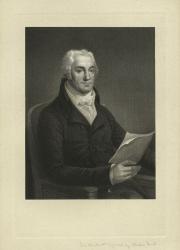1704 - 1792 Person Name: A. G. Spangenberg Hymnal Number: d136 Author of "High on his everlasting throne" in A Collection of Psalms, Hymns, and Spiritual Songs Suited to the Various Occasions of Public Worship. 2nd ed. Spangenberg, August Gottlieb, son of Georg Spangenberg, Lutheran pastor at Klettenberg near Nordhausen, was born at Klettenberg, July 15, 1704. He entered the University of Jena in 1722, as a student of law, but soon abandoned law for the study of theology. He lived in the house of Professor Buddeus, graduated M.A. in 1726, and for some time lectured there. In Sept. 1732 he went to Halle as adjunct of the Theological faculty and superintendent of the Orphanage schools. Here he associated himself with the Separatists, and by an edict from Berlin was deprived of his offices, and, on April 8, 1733, was expelled from Halle. He at once proceeded to Herrnhut, and was received into the Moravian Community, with which he had become acquainted as early as 1727. In 1735 he accompanied the Moravian colony which settled in Georgia, and served also in Pennsylvania and in the Island of St. Thomas. He returned to Germany in 1739, and was for some time at Marienborn in Hesse.
In Sept. 1741 he was present at an important Moravian Conference in London, and was there appointed a member of the Unity's Direction, and also director of their financial affairs. While in England he founded, in 1742, the first English Moravian settlement, at Smith House in Yorkshire. He was then, on June 15, 1744, consecrated at Herrenhaag as Moravian Bishop for North America, and from that time till 1762 was for the most part in America, working principally in Pennsylvania, and among the Indians, and paying two visits to Europe. In 1762 he became the senior member of the Unity's Direction as successor to Zinzendorf, and thereafter resided for the most part either at Herrnhut or at Barby. The last years of his life were spent at Berthelsdorf near Herrnhut, where he resigned his offices in Sept. 1791, and died Sept. 18, 1792. (Koch, v. 337; G. F. Otto's Lexicon Oberlausizischer Schriftsteller, iii. 306; Herzog's Real-Encyklopädie, xiv., 460, &c.)
Spangenberg was an earnest and able man, was much beloved and respected, and was entrusted by the Brethren with many important missions, being e.g. the principal agent in the negotiations between the Moravians and the British Government. He did good service both in consolidating the Moravian organization and by untiring labours in America. His Autobiography appeared in 1784. He also wrote a life of Zinzendorf, in 8 vols., published at Barby 1772-75. His other chief work is his Idea fidei fratrum, &c, Barby, 1779 (English tr. as An Exposition of Christian Doctrine, as taught in the Protestant Church of the United Brethren, &c, London, 1784), which is accepted as an authorised exposition of the Moravian theology. He only wrote a few hymns, which are of fervent but rational piety, but do not entitle him to high rank as a, hymnwriter. They were mostly written before 1746. Ten of them are included in the Brüder Gesang-Buch of 1778.
Of these ten hymns the following may be noted here:—
i. Der König runt, und schauet doch. Christian Works. First published as No. 1004 in Appendix, i., 1737, to the Herrnhut Gesang-Buch 1735, and is in 8 stanzas of 10 lines. Tr. as:—
High on His everlasting Throne. This is a spirited but free translation by J. Wesley, in Hymns & Sacred Poems, 1742.
ii. Die Kirche Christi ist hin und her. Unity of the Christian Church. The hymn has been translated as:—
The Church of Christ that He hath hallow'd here. This is a good translation of st. i.-iii. of the 1778 by Miss Winkworth, in her Lyra Germanica, 2nd Ser., 1858, p. 58.
iii. Heilige Einfalt, Gnadenwunder. Christian Simplicity. This is an excellent picture of his own Christian character. According to Bunsen, 1833, p. 904, it was written as a birthday hymn for his sister. The date which Bunsen gives for its composition (1744) is probably a misprint for 1741. Translated as:—
1. When simplicity we cherish. This is given in 14 stanzas as No. 387 in pt. ii., 1746, of the Moravian Hymn Book. In the 1789 and later eds. (1849, No. 603) it is reduced to 6 stanzas, and is entirely rewritten, save the opening line. [Rev. James Mearns, M.A.]
--Excerpts from John Julian, Dictionary of Hymnology (1907)
August Gottlieb Spangenberg


 My Starred Hymns
My Starred Hymns





